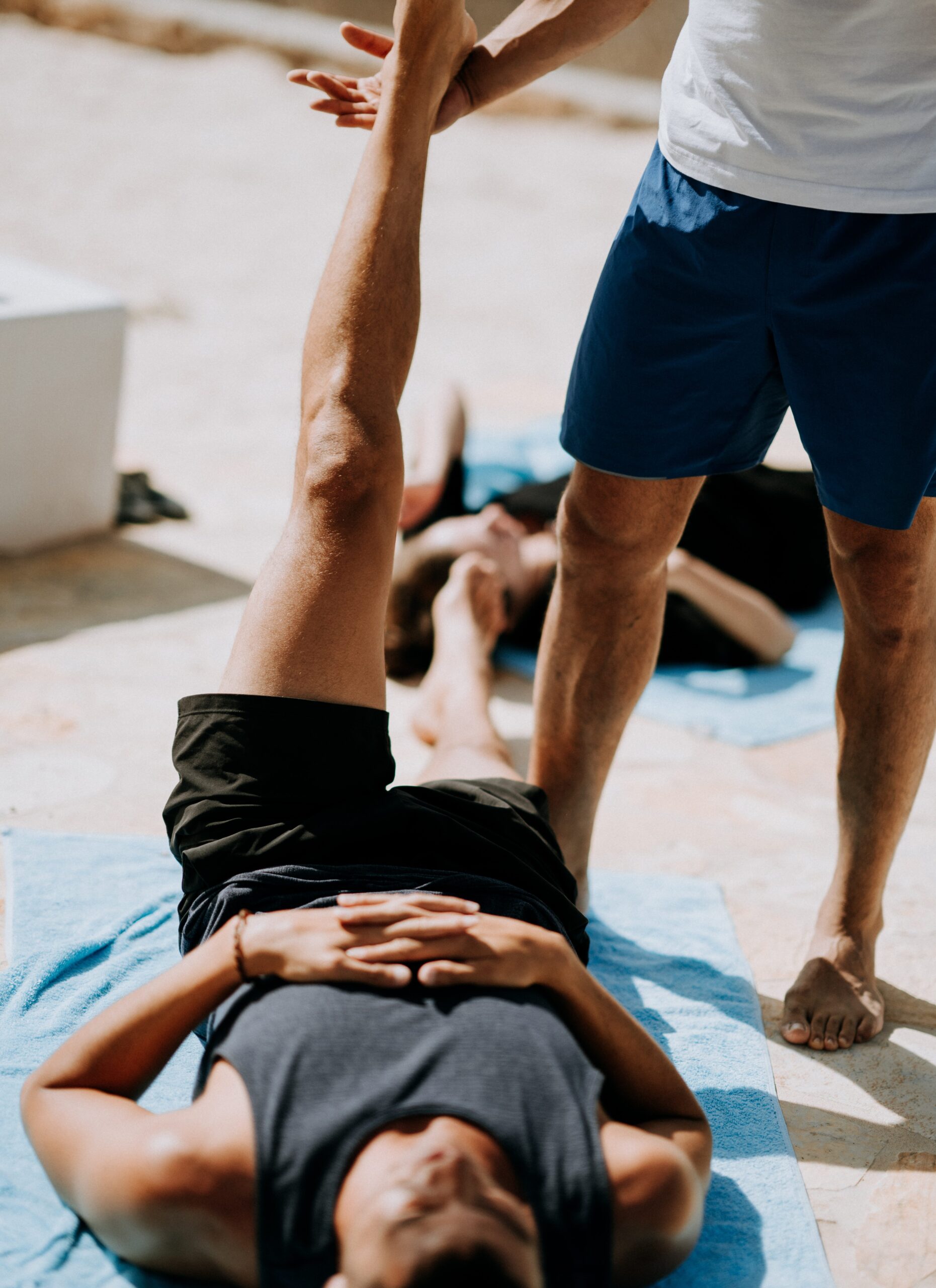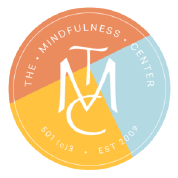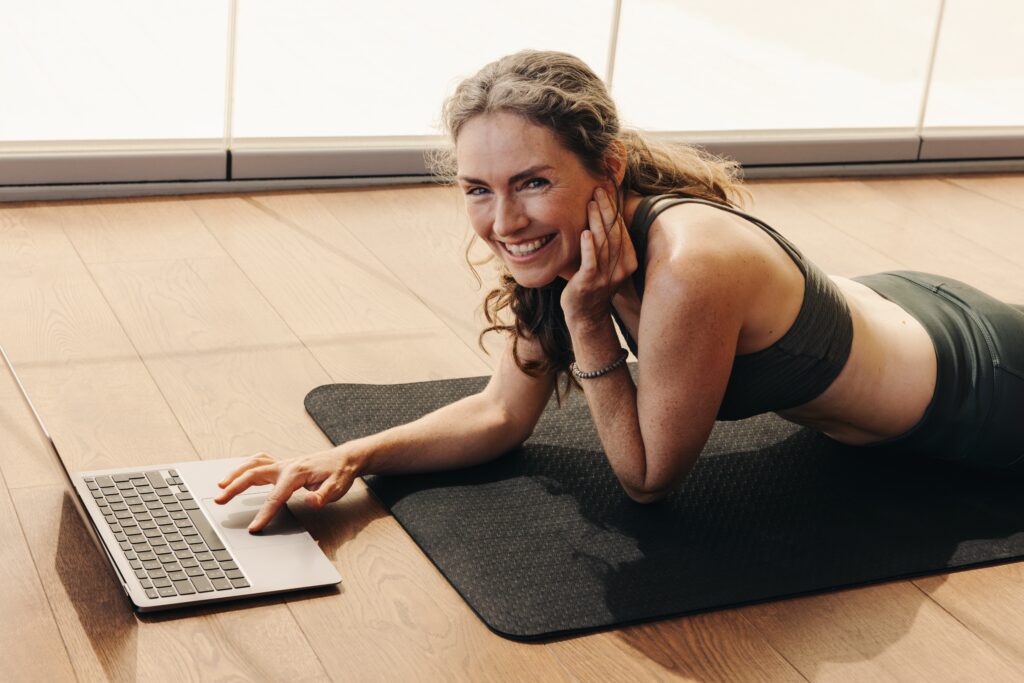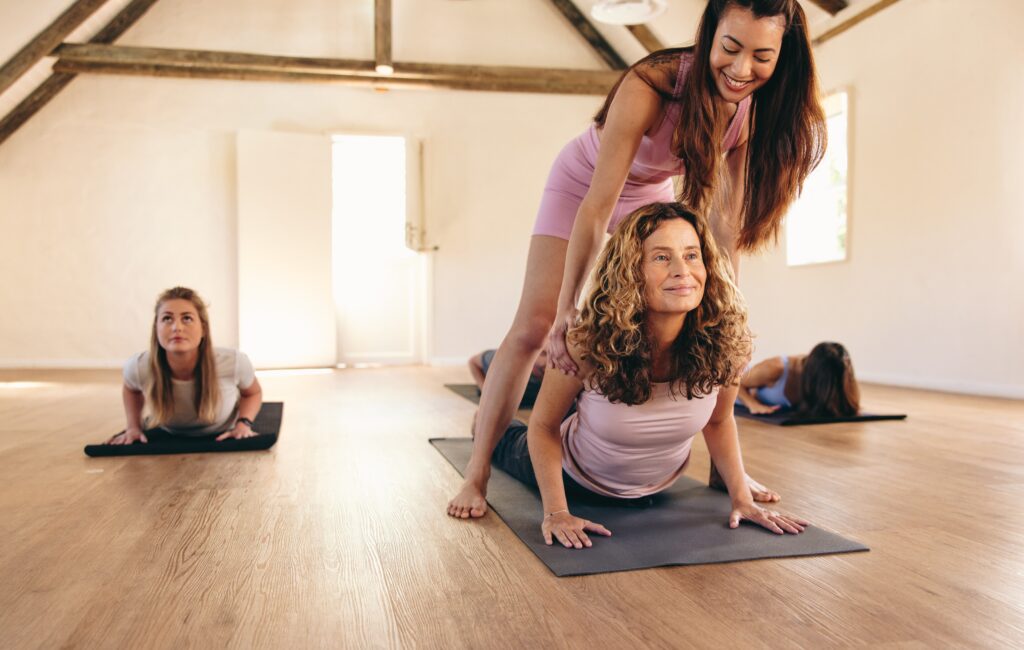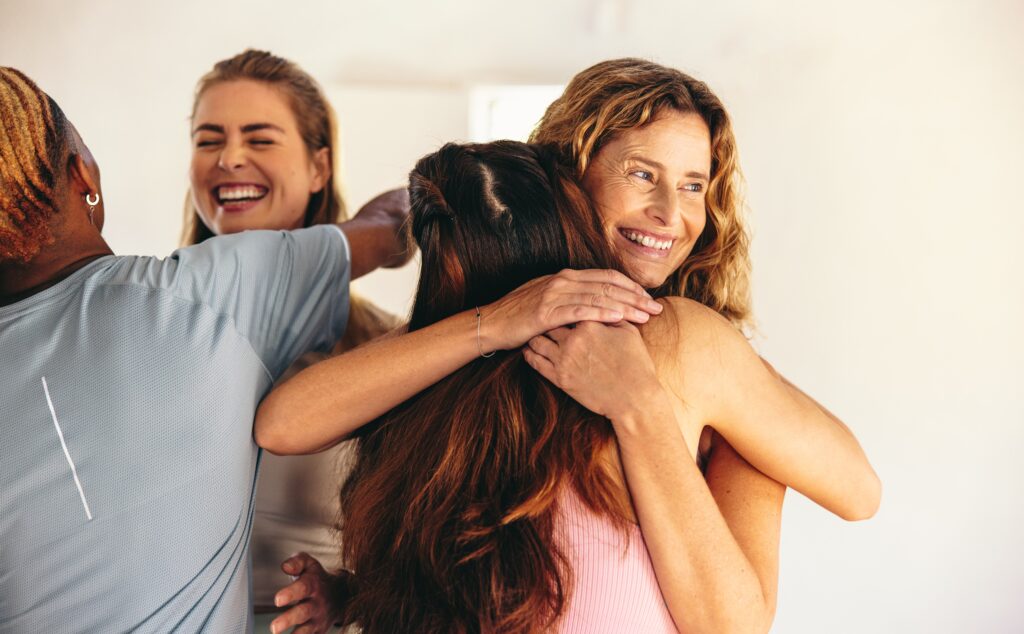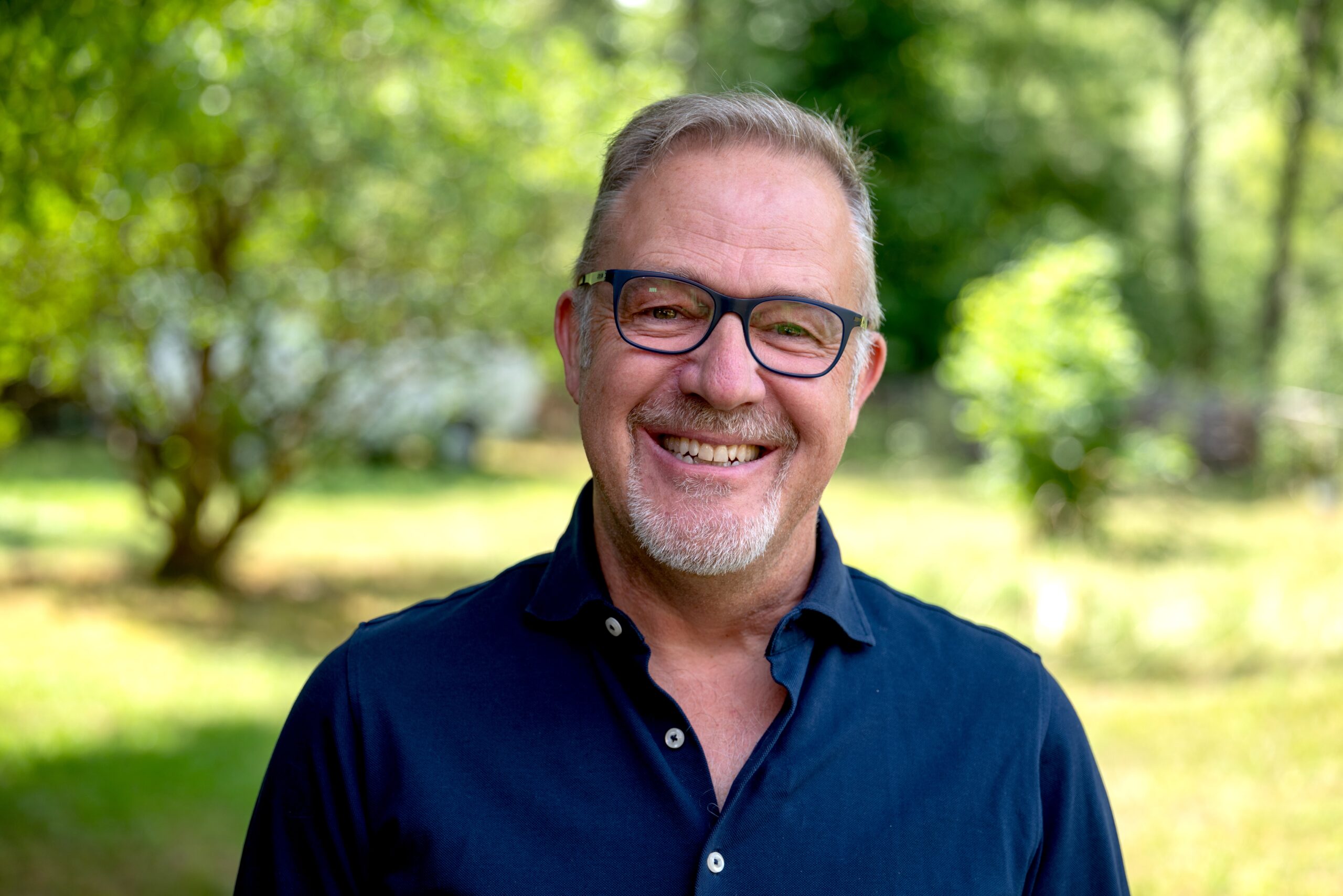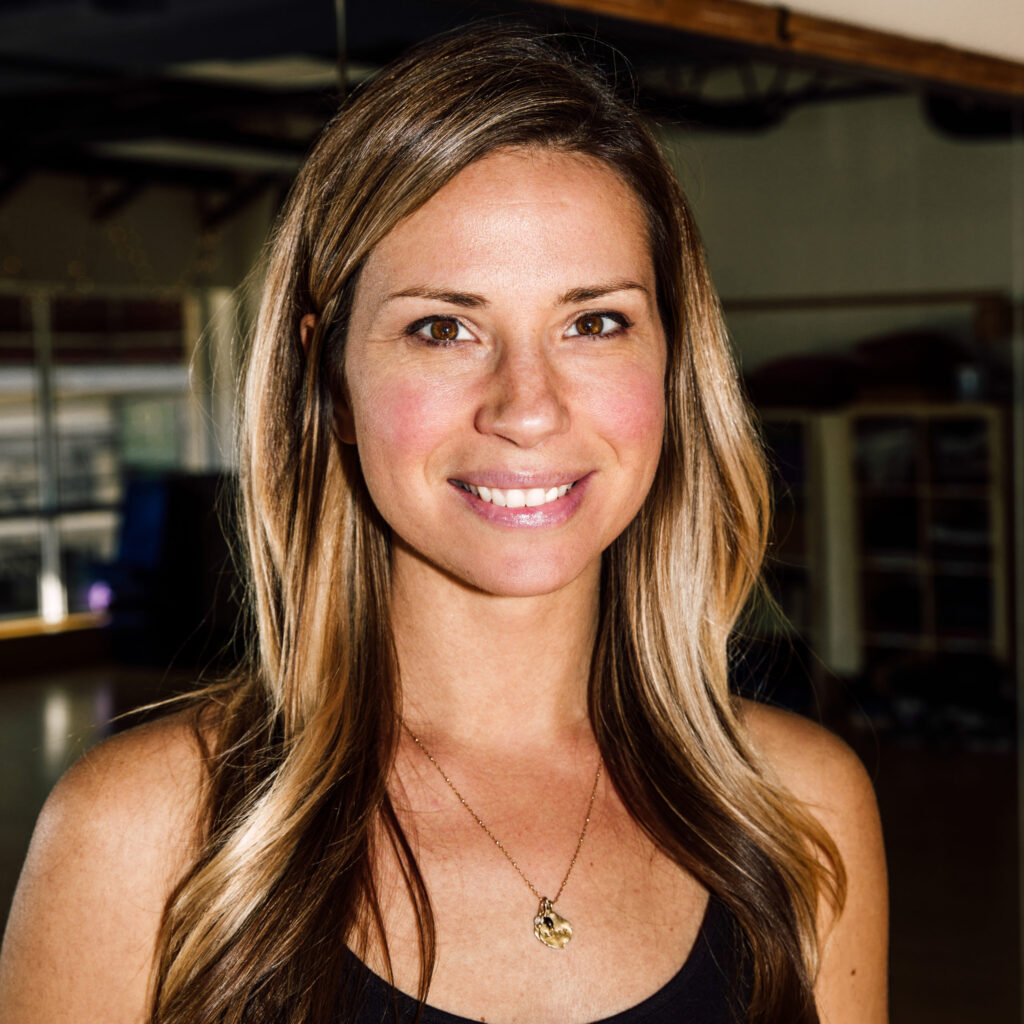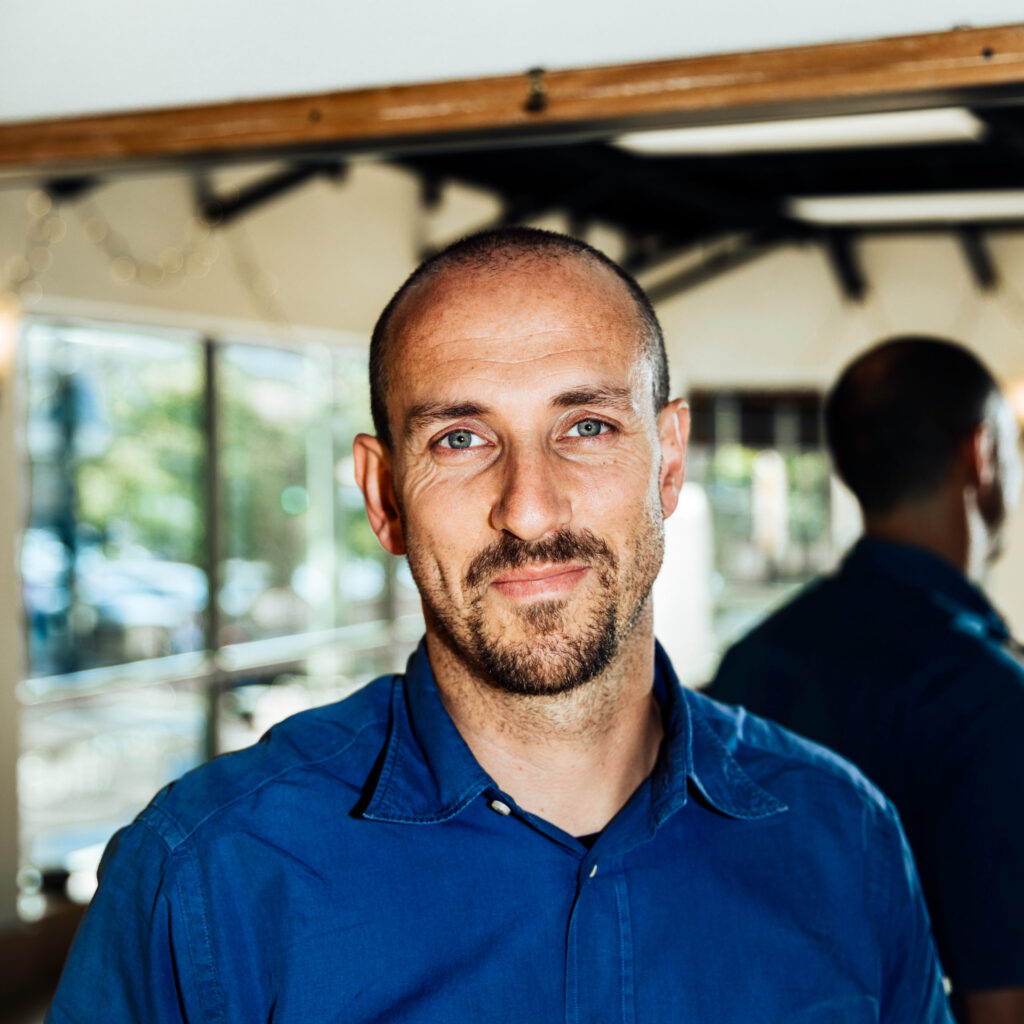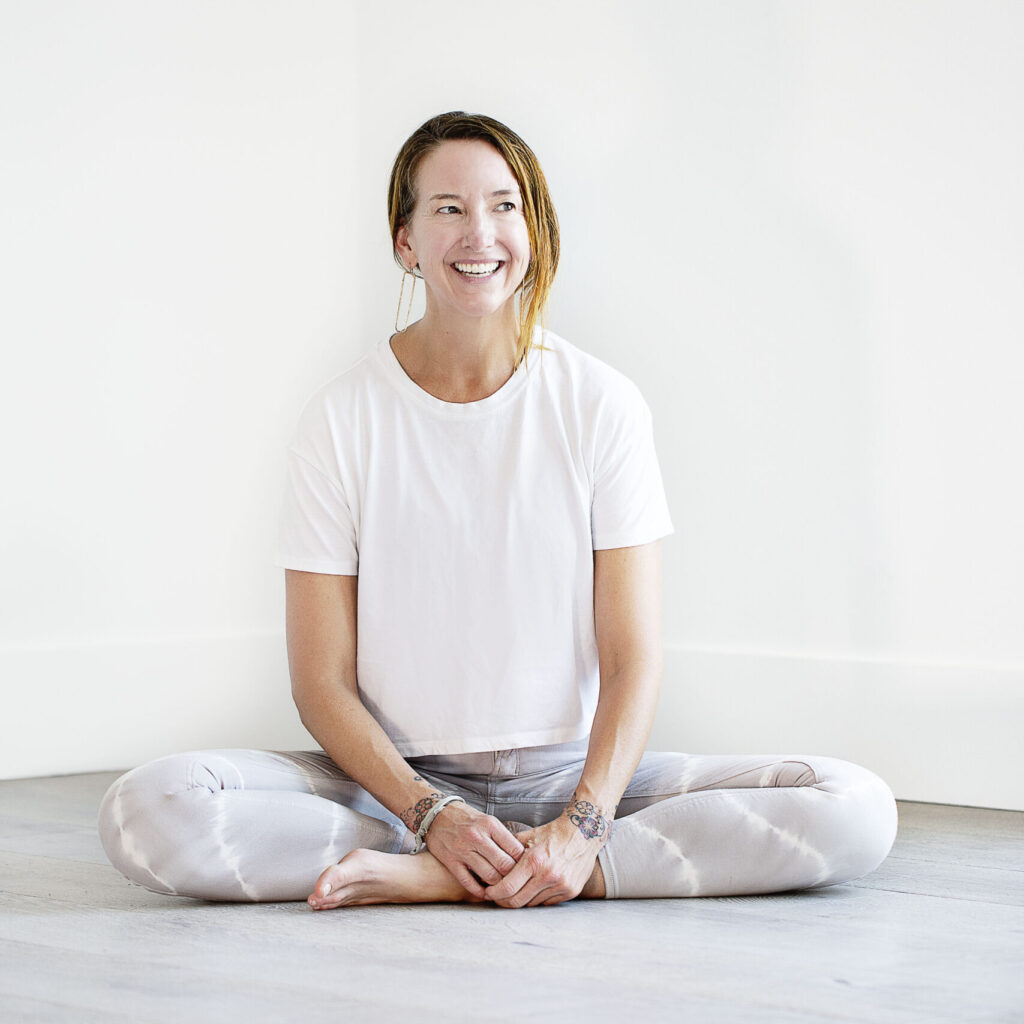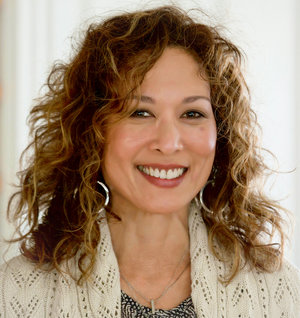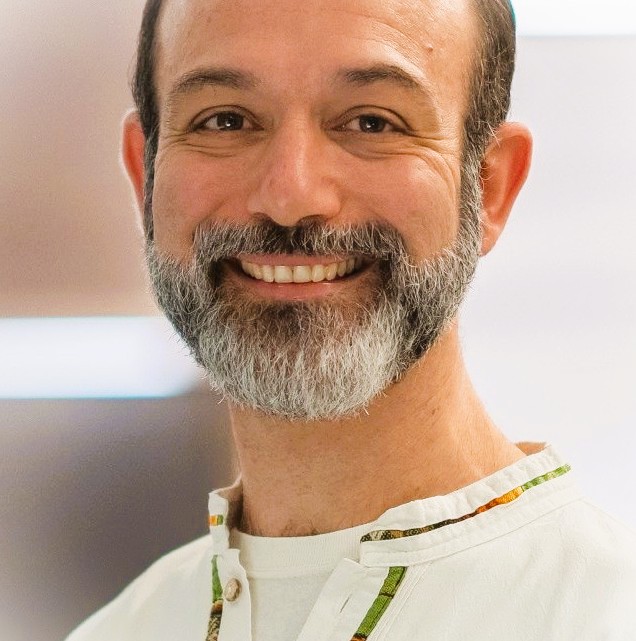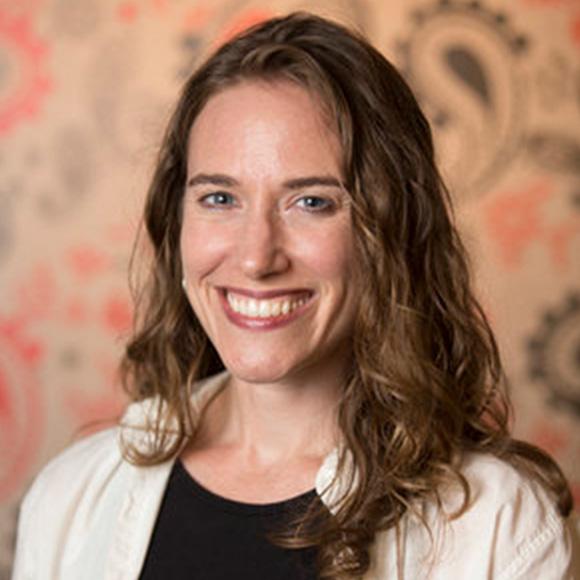Design and teach therapeutic yoga for groups and individuals with specific needs or health challenges. As a complete professional program, students are prepared to design and teach therapeutic Yoga for groups and individuals with specific needs or health challenges.
Course #101: Professional Practices in Yoga Therapy, IAYT Educational Comp 5.1 Ethical Principles (15 hrs) and 5.2 Legal, Regulatory and Business (5 hrs) and 5.3 Relationships with Peers (5hrs) and 5.4 Personal and Professional Development (5 hrs) and 3.2.4 Scope of Practice (2.5 hrs) and 4.1 Practicum (2.5 hrs). Students learn professional considerations including ethical principles, scope of practice and need for referral, legal regulatory and business issues, collaboration and networking, personal and professional development and continuing education.
Course #102: Foundations of Yogic Philosophies– IAYT Educational Comp 1.1, Yoga Teachings & Philosophy (35 hrs)Familiarity with the evolution of the teachings and philosophy of the yoga tradition and its relevance and application to yoga therapy, including teachings from Vedic and post-Vedic periods, Samkhya, Yoga, Tantra, and Ayurveda.
Course #103: Applied Yoga Anatomy: The Biomechanics of Yoga, IAYT Educational Comp 2.1.2, Anatomy and Physiology (32.5 hrs) and 4.1, Practicum (2.5 hrs) Biomechanics and movement as they relate to yoga, Ability to assess structural alignment and imbalances. Design and modify asana protocols appropriate to meet individual needs, physical limitations and diverse populations.
Course #104: Yoga Therapy Principles and Skills, IAYT Educational Comp 3.3 Principles and Skills for Educating Clients (35 hrs). Students develop the skills needed to implement effective teaching methods, adapt to unique styles of learning, provide supportive and effective feedback, acknowledge client’s/student’s progress, to cope with unique difficulties/successes and to develop and adjust appropriate practice strategies to the client/student. Students also develop a demonstrated ability to transmit the value of self-awareness and self- responsibility.
Course #105: Yoga Therapy Tools, Working with Individuals, IAYT Educational Comp 3.1, Yoga Therapy Tools (32.5 hrs) and 4.1 Practicum (2.5 hrs) Application of yama and niyama. Range of yoga practices and potential therapeutic effects. Students gain in-depth knowledge of the range of yoga practices and yoga tools including asana, pranayama, yoga nidra, and meditation as well as lifestyle concepts of sanctuary and vastu shastra, nutrition, and herbalism. In-depth review of contraindications of yoga practices for specific conditions and circumstances is provided.
Course #106: Yoga Therapy Tools- Working with Groups, IAYT Educational Comp 3.1, Yoga Therapy Tools (22.5 hrs), 3.4 Teaching Methodology, Principles and Skills in Working with Groups (10 hrs) and 4.1 Practicum (2.5 hrs) . Students explore the range of yoga practices and yoga tools, including asana, pranayama, meditation and yogic dietary concepts as they apply to working in a group setting. Students will deepen their ability to design, implement and evaluate group programs, as they gain familiarity with group dynamics and techniques, including communication skills, time management, and the establishment of priorities and boundaries as well as techniques to address the specific needs of individual participants, to the degree possible in a group setting.
Course #107: Research Methodology in Yoga and Mind-Body Medicine, IAYT Educational Comp 2.1.3 Anatomy & Physiology (20 hrs) and 2.2, Additional Biomedical Knowledge (15 hrs). Common pathologies and disorders of all the major systems, including symptoms, management, illness trajectories, and contraindications. Commonly used drugs and surgical procedures, common medical terminology and how to reference current healthcare information, including pathologies, disorders, drugs, and surgical procedures.
Course #108: Bridging the Ancient Practice and Modern Science of Healing, IAYT Educational Comp 1.3, Framework for Health and Disease (25 hrs) and 2.1, Anatomy and Physiology (10 hrs) Perspectives on health and disease from yoga and Ayurveda, including the concepts of :
– Koshas, Gunas, Doshas, Prakrti/vikrti, ama (undigested food, emotions, etc. accumulated in the body); agni (internal fire(s) and their contribution to health); prana vayu (prana, apana, vyana, udana,samana); surya/chandra (sun/moon);brmhana/langhana (expansion/contraction); and vyuha model: heya (the symptoms), hetu (the causes), hana (the goal), upaya (the tools).
– Knowledge of human anatomy and physiology, including major systems of the body and their interrelationships, as relevant to the work of a yoga therapist.
Course #109: Yoga and the Mind, IAYT Education Comp 1.2, Yoga and the Mind (35 hrs) Students in Yoga and the Mind will gain knowledge of yoga perspectives on the structure, states, functioning and conditions of the mind. These conditions of the mind and their expressions will be studied as expressed in such texts as the Yoga Sutra, the Bhagavad Gita and other texts.
Course #110: Yoga Therapy for Mental Health, IAYT Educational Comp 2.3, Psychology and Mental Health- (32.5 hours) & 3.1, Yoga Therapy Tools (2.5 hours) Knowledge of commonly occurring mental health conditions—from psychological distress to psychiatric conditions—symptoms, approaches/interventions, basic knowledge of psychological concepts and terminology, AND meditation and relaxation techniques.
Course #111: Neurobehavioral Perspectives on Yoga TherapyIAYT Educational Comp 2.1 Anat & Phys (15 hrs) and 2.4 Additional Biomedical Knowledge (10 hrs) and 2.5 Body-Mind Integration (10 hrs). Students gain knowledge of models of human development, including developmental stages, lifecycles, and personality, and their importance to medical and psychological health and well-being. Students will also learn about the influence of familial, social, cultural, and religious conditioning on mental and medical perspectives of health and healing. Students will learn the role of the interrelationships of the systems of the body and how they interact with the breath, mind, intellect, and emotions in health and well-being, and as mechanisms of transformation through yoga.
Course #112: Principles of the Therapeutic Relationship IAYT Educational Comp 3.2, Principles of the Therapeutic Relationship (32.5 hrs) and 4.1, Practicum (2.5 hrs). Communication skills: listening, presence, directive and non-directive dialogue, ability to recognize, adjust, and adapt to specific client/student needs in the therapeutic/professional relationship, dynamics of the therapist/client relationship. Knowledge of the scope of practice of yoga therapy and how to assess the need for referral to other professional services.
Course #113: The Science of Ayurveda: A Translation between Two Cultures IAYT Educational Comp 1.3, Framework for Health and Disease (25 hours), and 2.1, Anatomy and Physiology (10 hrs) Development/evolution of disease (samprapti [pathogenesis]), including direction, intensity, onset, and duration and their influence on the ease or difficulty of healing and disease management. AND Setting priorities: symptoms/pacification (shamana [short term]) and purification/ strengthening (shodhana [long term]). AND Knowledge of common pathologies and disorders of all the major systems, including symptoms, management, illness trajectories, and contraindications, as relevant to the work of a yoga therapist.

